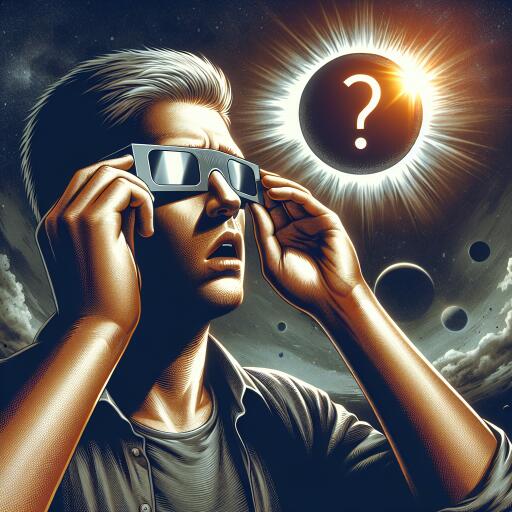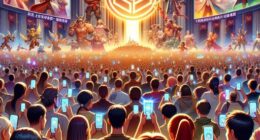So You Looked at the Eclipse Without Safety Glasses. What Should You Do Now?
When the skies darkened during the latest total solar eclipse, millions of Americans eagerly turned their gaze upwards to witness the celestial phenomenon. Despite numerous warnings about the dangers of looking directly at the sun without protective eyewear, many couldn’t resist the temptation to sneak a quick glance.
Following the eclipse, online searches for phrases such as “my eyes hurt” and “I looked at the eclipse without glasses” surged, highlighting the reality that a considerable number of viewers may have exposed their eyes to potential harm.
According to Sunir Garg, a physician and co-director of the retina research program at Wills Eye Hospital in Philadelphia, “For most people, they probably looked for a few seconds and looked away after, either because it hurt or because they knew it was a bad idea.” The momentary curiosity to directly observe the eclipse, however, could have unintended consequences for your eye health.
Direct exposure to the sun’s rays during an eclipse can damage the human eye, particularly the macula – a critical part of the retina responsible for clear vision. Because the moon partially covers the sun during an eclipse, many people find it less uncomfortable to look at, potentially leading to more prolonged exposure and, consequently, to more significant eye damage.
If you’re among those who glanced at the eclipse without proper protection, you might be wondering about the next steps. Immediate symptoms of eye damage can include blurry, wavy, or distorted vision, or seeing spots when blinking. Fortunately, these symptoms might not be permanent and could improve in the following hours or days.
Should your central vision remain distorted or if your vision does not return to normal after several days, it’s crucial to consult an ophthalmologist. Garg suggests performing a simple vision check at home by covering each eye separately and focusing on something with fine detail, like a newspaper or a cell phone screen. This can help you identify if either eye, or both, has been affected.
It’s important to note that the absence of pain doesn’t indicate the absence of damage. The macula, when damaged, doesn’t cause pain, making it harder to realize the extent of the potential harm done. Regular eye exams are vital for eye health, regardless of whether you’ve looked at an eclipse unprotected. Conditions like glaucoma or macular degeneration often don’t present noticeable symptoms until significant damage has occurred.
Even if you feel your eyes are fine after an unprotected eclipse viewing, annual check-ups with an ophthalmologist are advised, particularly for those over the age of 40. These regular examinations can help detect and address changes in eye health early on, safeguarding your vision for the future.
While the allure of witnessing a solar eclipse firsthand is undeniable, the potential risks to eye health emphasize the importance of observing such events safely — with the right protective eye gear — and seeking prompt medical advice if you suspect your eyes might have been harmed.
Preserving your vision and ensuring the health of your eyes should always be a priority, eclipsing the momentary wonder of gazing directly at the sun without adequate protection.









